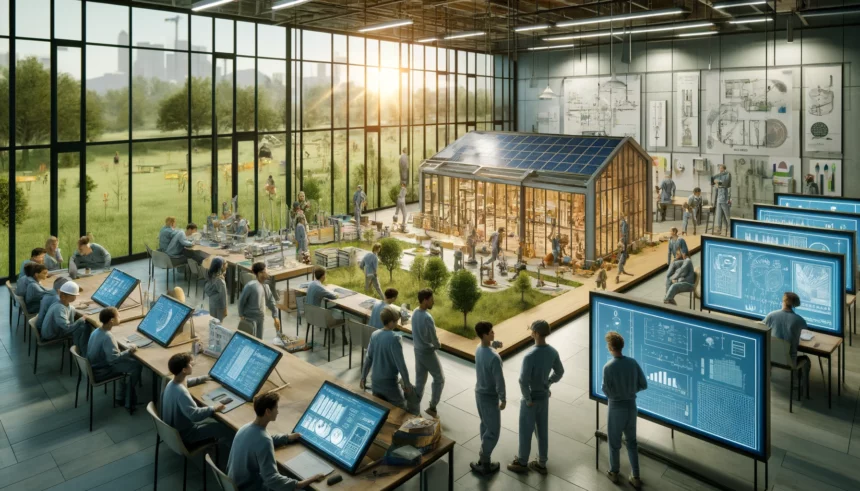As the global push towards sustainability intensifies, countries are rapidly enhancing their educational frameworks to nurture the necessary skills for a greener future. This shift is vividly evident in sectors like construction, which historically have high environmental impacts. Here’s how educational initiatives worldwide are pivoting to meet these challenges head-on.
A Global Movement to Green Construction
The “Building Green – Greening the construction sector” seminar, held on March 26, 2024, under the European Training Foundation’s GRETA initiative, highlighted the sweeping efforts in vocational education and training (VET) to support Europe’s green transition. The GRETA initiative—Greening Responses to Excellence through Thematic Actions—draws inspiration from climate activist Greta Thunberg and focuses on incorporating environmental sustainability into VET programs.
Seminar Insights
With over 150 attendees from around the globe and discussions available in multiple languages, the seminar showcased the worldwide commitment to greening VET. Key points included:
- Expanding Network: GRETA continues to grow, now encompassing 303 centers of vocational excellence across over 40 countries.
- Need for Green Skills: A staggering three-quarters of VET teachers feel they lack the necessary skills to teach green technologies effectively.
- Teacher Training: Emphasis on enhancing teacher training to provide the next generation with the skills needed for sustainable development.
Challenges and Innovations in the Construction Sector
The Environmental Cost
The construction industry is a major consumer of raw materials and a significant polluter, responsible for:
- 35% of total waste generation in the EU.
- A CO2 footprint of 250 million tons annually from building materials alone.
- Consuming one-third of the EU’s fresh water, with only 1% of building materials reused.
Innovative Solutions
Karsten Frøhlich Hougaard of the Danish Technological Institute spoke about innovative green materials and technologies to reduce the environmental footprint of construction. Challenges like material availability, cost, and lack of testing were discussed alongside the urgent need for skill development in sustainable construction techniques and resource efficiency.
Spotlight on Local Success Stories
Slovenia and Moldova Leading the Way
In Slovenia, the focus on integrating sustainability into VET qualifications is seen through the development of competency frameworks in 39 sectors, tailored to enhance both general and sector-specific skills.
Moldova has taken significant steps in green building education since 2016, with more than 500 individuals trained in areas like green concrete and renewable energy technologies. The approach emphasizes the importance of linking educators with industry to share knowledge and practical experience.
Bridging Global Knowledge in VET
The BILT project (Bridging Innovation and Learning in TVET), implemented by UNESCO-UNEVOC with support from Germany’s BIBB, aims to foster global cooperation in TVET. The project focuses on addressing challenges arising from technological, social, environmental, and workplace changes, with a particular emphasis on the construction sector.
Future Directions
As these initiatives continue to evolve, the integration of green skills into education systems globally promises to not only transform industries but also equip future generations with the competencies needed to thrive in a sustainable world.
Conclusion
The momentum is building for a greener future through enhanced vocational training and education. As nations collaborate and innovate, the blueprint for sustainable development becomes clearer, ensuring that the workforce is ready to meet the challenges of tomorrow’s green economy.
















